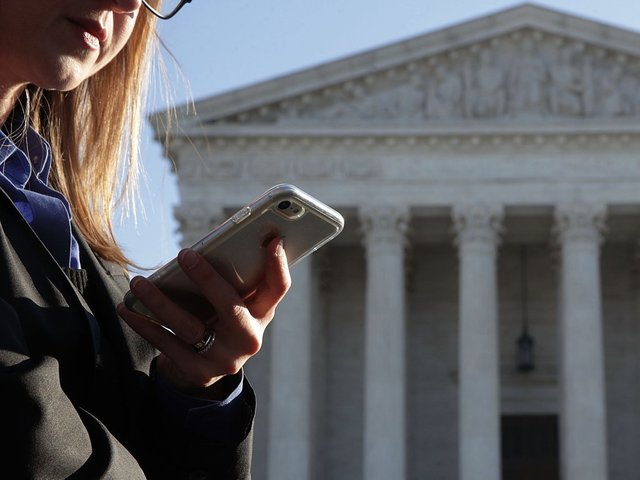The Supreme Court’s decision in Carpenter v. United States is not quite a full manifesto for digital privacy, but it insists that there is a new discussion to be had, and it tries to set the terms.
Everyone or almost everyone in America has a cell phone, but, in a 5, 4 decision on Friday, the Supreme Court decided that this does not mean that all Americans are subject to close surveillance of their movements, conducted without a warrant, stretching back in time, in some cases, for years. Chief Justice John Roberts wrote the decision in Timothy lvory Carpenter v. United State; he was joined by Justices Ruth Bader Ginsburg, Stephen Breyer, Sonia Sotomayor, and Elena Kagan. One of the strengths of the decision is that it recognizes its own complexity placing the imperfection of precedents that deal with things called “phones,” which are far from smart phones, alongside the enduring power of the Founders’ belief in the right to be secure in one’s papers and effects and doesn’t back away. Carpenter is not quite a full manifesto for digital privacy, but it insists that there is a new discussion to be had, and it tries to set the terms. It almost certainly marks the beginning of a series of cases on the private data held by cell phone service providers, social-media companies, and app makers. And it is a pretty good start.
✅ @kskuldeep, I gave you an upvote on your post! Please give me a follow and I will give you a follow in return and possible future votes!
Thank you in advance!
thanks for aprorove me and plz chek my post per day thanks sir have a nice day